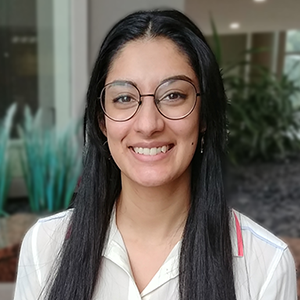
Why we advocate
When I first moved to Washington, D.C., over 10 years ago, I had no idea I would end up working in science policy. I thought I wanted a job in international development or global health policy. Everyone I knew aspired to work on Capitol Hill or become a diplomat. Some of them focused on health policy, but mostly on patients’ access to drugs or reforming the health care system.
Back then, I knew very little about science policy or advocacy. Now, through an odd turn of events, I spend most of my days trying to get scientists to advocate for funding and legislative support — and trying to get policymakers to listen to those scientists.
As American Society of Biochemistry and Molecular Biology members, most of you do foundational work, not only ensuring we can treat diseases but also discovering renewable energy sources and making our food systems more sustainable. Businesses are reluctant to fund such foundational work — after all, if we don’t know where basic scientific research leads, what for-profit company would support it?
Without basic research, however, we won’t have new drugs, cutting-edge innovations, or the knowledge we need to address the challenges of the 21st century. This is what the ASBMB public affairs staff and Public Affairs Advisory Committee work to get policymakers to both understand and believe in so they will support (and fund) federal agencies such as the National Science Foundation and the National Institutes of Health — the agencies that support you.
That’s why we work closely with Congress, the NIH, the NSF and others, and with our members to advocate for basic scientific research funding. In this issue of ASBMB Today, you’ll read about some of our major wins and some efforts we still need to do a lot of work on. You’ll also read about funding opportunities that are a little unusual but might help support your work.
Our committee and our staff are passionate about advocating for science. If you are interested in becoming an advocate, know that there are always ways you can get involved. Never hesitate to reach out to us at publicaffairs@asbmb.org. And, if you want to stay in the loop on our efforts, make sure you subscribe to our Advocacy Newsletter on the ASBMB website.
Enjoy reading ASBMB Today?
Become a member to receive the print edition four times a year and the digital edition monthly.
Learn moreGet the latest from ASBMB Today
Enter your email address, and we’ll send you a weekly email with recent articles, interviews and more.
Latest in Opinions
Opinions highlights or most popular articles

Women’s health cannot leave rare diseases behind
A physician living with lymphangioleiomyomatosis and a basic scientist explain why patient-driven, trial-ready research is essential to turning momentum into meaningful progress.

Making my spicy brain work for me
Researcher Reid Blanchett reflects on her journey navigating mental health struggles through graduate school. She found a new path in bioinformatics, proving that science can be flexible, forgiving and full of second chances.

The tortoise wins: How slowing down saved my Ph.D.
Graduate student Amy Bounds reflects on how slowing down in the lab not only improved her relationship with work but also made her a more productive scientist.

How pediatric cataracts shaped my scientific journey
Undergraduate student Grace Jones shares how she transformed her childhood cataract diagnosis into a scientific purpose. She explores how biochemistry can bring a clearer vision to others, and how personal history can shape discovery.

Debugging my code and teaching with ChatGPT
AI tools like ChatGPT have changed the way an assistant professor teaches and does research. But, he asserts that real growth still comes from struggle, and educators must help students use AI wisely — as scaffolds, not shortcuts.

AI in the lab: The power of smarter questions
An assistant professor discusses AI's evolution from a buzzword to a trusted research partner. It helps streamline reviews, troubleshoot code, save time and spark ideas, but its success relies on combining AI with expertise and critical thinking.

